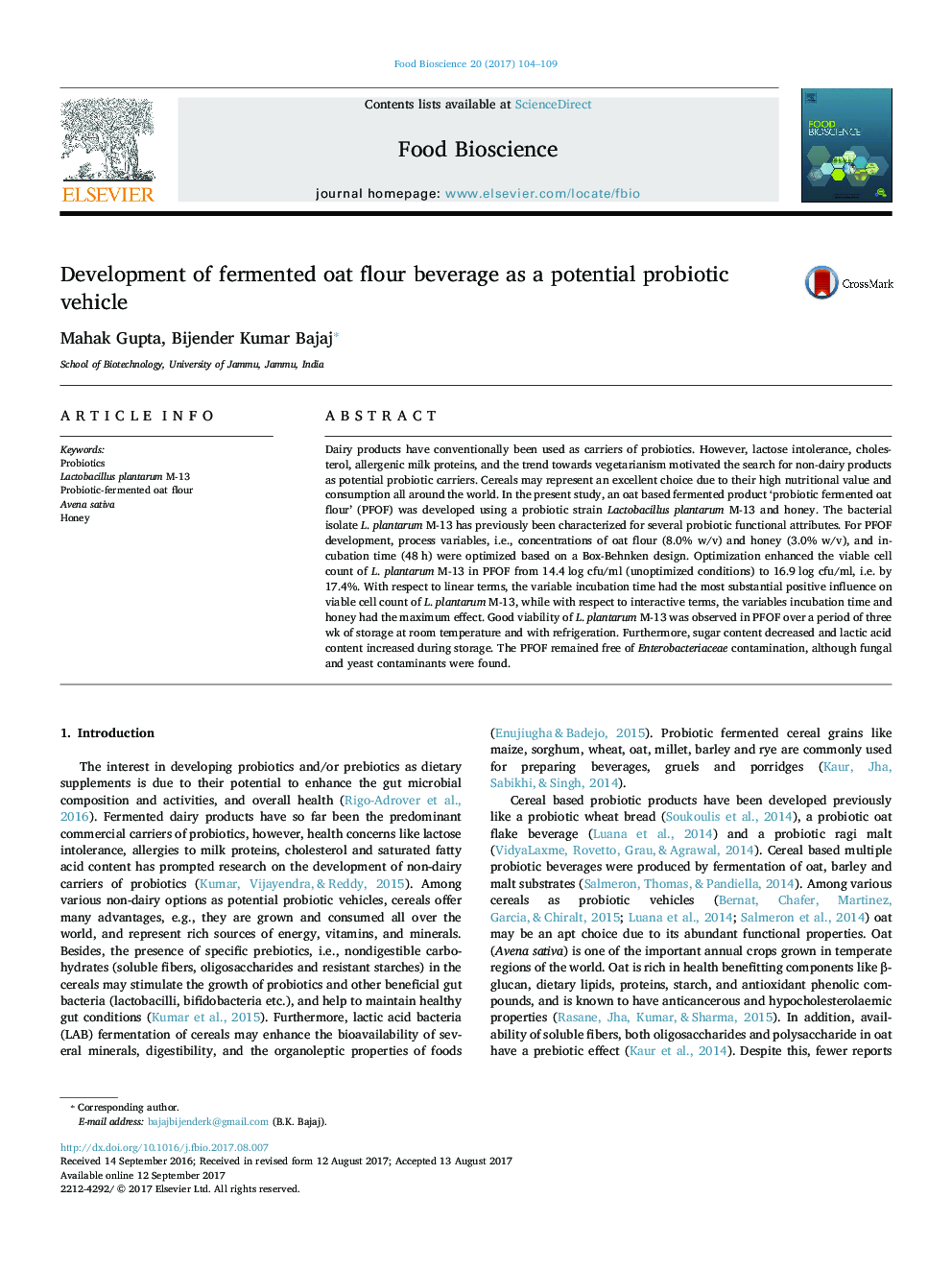| Article ID | Journal | Published Year | Pages | File Type |
|---|---|---|---|---|
| 4753072 | Food Bioscience | 2017 | 6 Pages |
Abstract
Dairy products have conventionally been used as carriers of probiotics. However, lactose intolerance, cholesterol, allergenic milk proteins, and the trend towards vegetarianism motivated the search for non-dairy products as potential probiotic carriers. Cereals may represent an excellent choice due to their high nutritional value and consumption all around the world. In the present study, an oat based fermented product 'probiotic fermented oat flour' (PFOF) was developed using a probiotic strain Lactobacillus plantarum M-13 and honey. The bacterial isolate L. plantarum M-13 has previously been characterized for several probiotic functional attributes. For PFOF development, process variables, i.e., concentrations of oat flour (8.0% w/v) and honey (3.0% w/v), and incubation time (48Â h) were optimized based on a Box-Behnken design. Optimization enhanced the viable cell count of L. plantarum M-13 in PFOF from 14.4Â log cfu/ml (unoptimized conditions) to 16.9Â log cfu/ml, i.e. by 17.4%. With respect to linear terms, the variable incubation time had the most substantial positive influence on viable cell count of L. plantarum M-13, while with respect to interactive terms, the variables incubation time and honey had the maximum effect. Good viability of L. plantarum M-13 was observed in PFOF over a period of three wk of storage at room temperature and with refrigeration. Furthermore, sugar content decreased and lactic acid content increased during storage. The PFOF remained free of Enterobacteriaceae contamination, although fungal and yeast contaminants were found.
Keywords
Related Topics
Physical Sciences and Engineering
Chemical Engineering
Bioengineering
Authors
Mahak Gupta, Bijender Kumar Bajaj,
